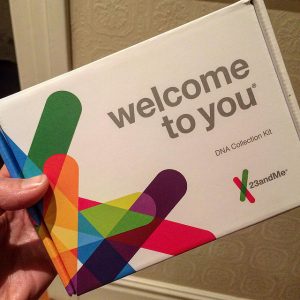
Companies like Ancestry.com use DNA samples to educate people about their genetic ancestry. This relatively new service is used by a growing number of people, and a recent article on STAT explains how has caused some uncomfortable moments for white supremacists who learn of their non-white ancestry. The article covers research by Aaron Panofsky and Joan Donovan who studied posts on Stormfront, a white nationalist website, wherein users discuss their genetic ancestry results.
While one might assume that white nationalists would avoid posting their non-white ancestry online, Panofsky and Donovan found that members of Stormfront are quick to support each other in the face of genetic testing results which show non-white heritage.
“Instead of rejecting members who get contrary results, Donovan said, the conversations are ‘overwhelmingly’ focused on helping the person to rethink the validity of the genetic test. And some of those critiques — while emerging from deep-seated racism — are close to scientists’ own qualms about commercial genetic ancestry testing.”
Users discuss the potential failings of genetic testing, or posit that individual knowledge of one’s history is more useful than some findings in a remote laboratory. In other cases, individuals were told that they could remain in Stormfront so long as they didn’t “mate” and spread their non-white genes, and others even claimed that a sprinkling of non-white ancestry bolstered the community’s “diversity”. In sum, though genetic ancestry testing undermines the narratives that white supremacists utilize, users on Stormfront are negotiating their community boundaries with each new genetic test, and “rethinking who counts as white” in the process.

Comments